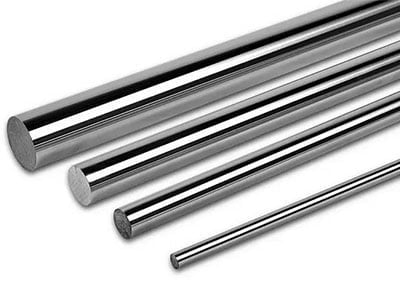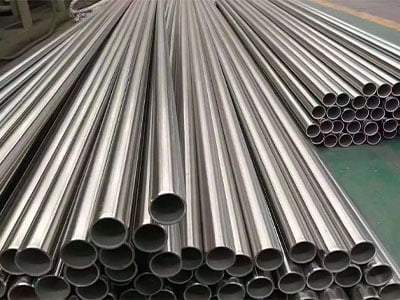Introduction

In the dynamic landscape of stainless steel procurement, selecting the right suppliers is paramount for businesses seeking quality, reliability, and efficiency. As we navigate through 2024, it’s crucial to evaluate and discern among the plethora of stainless steel suppliers available in the market. This blog post delves into key insights for assessing and selecting the best stainless steel suppliers to meet your specific needs and requirements.
Understanding Your Requirements
Before embarking on the evaluation of potential suppliers, it is paramount to meticulously define your requirements and specifications. These encompass a multitude of facets crucial to the seamless functioning of your operations and the satisfaction of your clientele. Firstly, consider the grade of stainless steel that best suits your intended application. Whether you require austenitic, ferritic, or martensitic stainless steel, each grade possesses distinct properties and characteristics that dictate its suitability for specific environments and purposes.
Moreover, quantify the required quantity of stainless steel materials to fulfill your production or project needs. Whether you need bulk orders to support large-scale manufacturing endeavors or smaller quantities for niche applications, clarity regarding the volume required is essential for efficient procurement planning and inventory management.
Equally significant is establishing clear delivery timelines in alignment with your project schedules and operational deadlines. Communicate your expectations regarding lead times, shipping arrangements, and any special handling requirements to potential suppliers to ensure seamless coordination and timely delivery of materials.
Quality Assurance Measures
Ensuring the quality of stainless steel materials is paramount in any procurement process, and it begins with evaluating the commitment of potential suppliers to robust quality assurance practices. Beyond mere claims of quality, seek out suppliers who demonstrate a tangible dedication to upholding stringent quality control standards, certifications, and industry best practices.
Look for suppliers who have obtained recognized certifications such as ISO 9001 for quality management systems, ISO 14001 for environmental management systems, and specific ASTM or ASME standards relevant to stainless steel production and manufacturing. These certifications serve as tangible evidence of a supplier’s adherence to internationally recognized quality standards and their commitment to continuous improvement.
In addition to certifications, conduct thorough assessments of a supplier’s manufacturing processes to gauge their efficacy in maintaining quality standards throughout the production cycle. Evaluate factors such as the precision and reliability of their equipment, the competence of their workforce, and the implementation of quality control measures at every stage of production.
Furthermore, scrutinize a supplier’s material testing procedures to ensure the integrity and reliability of their products. Look for suppliers who conduct comprehensive material testing, including mechanical, chemical, and dimensional analyses, to verify the quality and consistency of their stainless steel materials. A commitment to rigorous testing protocols demonstrates a supplier’s dedication to delivering products that meet or exceed customer expectations.
Reliability and Timeliness
Timely delivery and reliability stand as cornerstone factors in the selection of stainless steel suppliers, crucial for maintaining smooth operations and meeting customer demands. When assessing potential suppliers, it’s imperative to evaluate their track record for meeting delivery schedules, responsiveness to inquiries, and capacity to adapt to fluctuations in demand.
Begin by scrutinizing the supplier’s historical performance in meeting delivery deadlines. Request data or references showcasing their past delivery records, including on-time delivery rates and any instances of delays. A supplier with a consistent track record of punctual deliveries instills confidence in their reliability and commitment to fulfilling contractual obligations.
Beyond punctuality, responsiveness to inquiries plays a pivotal role in supplier evaluation. Assess the supplier’s communication channels and responsiveness to queries, requests for quotations, and concerns. Prompt and transparent communication is indicative of a supplier’s commitment to customer satisfaction and willingness to address issues in a timely manner, fostering a collaborative and mutually beneficial partnership.
Furthermore, evaluate the supplier’s ability to adapt to fluctuations in demand and accommodate unexpected changes in order volumes or specifications. Inquire about their flexibility in scaling production, inventory management strategies, and contingency plans for mitigating supply chain disruptions. A supplier with robust logistical capabilities and agile operations can navigate challenges seamlessly, ensuring continuity of supply even during periods of volatility.
Cost-Effectiveness and Value Proposition

While cost undoubtedly holds significant weight in supplier selection, it’s paramount to view pricing within the broader context of value. Striking a balance between price and value entails evaluating suppliers based on their comprehensive value proposition, encompassing factors beyond mere cost considerations.
Begin by assessing the product quality offered by potential suppliers. Quality serves as a fundamental determinant of value, impacting the performance, durability, and reliability of stainless steel materials. Scrutinize the supplier’s quality control processes, certifications, and track record for delivering consistent and defect-free products. Investing in high-quality materials may entail a higher upfront cost but often yields long-term savings by minimizing maintenance, repairs, and replacements.
Reliability is another critical aspect of a supplier’s value proposition. Evaluate their track record for reliability in terms of meeting delivery schedules, responding to inquiries promptly, and resolving issues effectively. A reliable supplier instills confidence in your supply chain, mitigating the risk of disruptions and ensuring continuity of operations.
Customer service plays a pivotal role in enhancing the overall value offered by suppliers. Assess the supplier’s responsiveness, accessibility, and willingness to accommodate your needs and preferences. Transparent communication, proactive problem-solving, and personalized support contribute to a positive customer experience and foster a collaborative partnership built on trust and mutual respect.
Customer Feedback and Reputation
Customer feedback and reputation serve as invaluable indicators of a supplier’s performance and reliability. Utilize online reviews, testimonials, and industry references to gauge the satisfaction levels of past and current customers. Look for suppliers with a proven track record of customer satisfaction, prompt resolution of issues, and a positive reputation within the industry.
| Supplier | Customer Feedback | Reputation | Performance | Issue Resolution |
|---|---|---|---|---|
| Supplier A | Numerous positive reviews highlighting excellent service and product quality. | Well-regarded within the industry for reliability and customer satisfaction. | Consistently meets or exceeds expectations. | Known for promptly addressing any issues or concerns raised by customers. |
| Supplier B | Mixed reviews with some customers praising their products while others express dissatisfaction with customer service. | Reputation varies, with some industry references praising their innovation while others question reliability. | Performance can be inconsistent, with occasional delays or quality issues reported. | Responses to issues vary; some are resolved promptly, while others may linger unresolved. |
| Supplier C | Overwhelmingly positive testimonials emphasizing exceptional customer service and reliable products. | Widely recognized as a top-tier supplier known for excellence in all aspects. | Consistently delivers high-quality products on time and exceeds customer expectations. | Swift and effective issue resolution, with minimal disruptions to customer satisfaction. |
| Supplier D | Limited online presence makes it difficult to assess customer feedback. | Relatively unknown reputation within the industry. | Performance may vary, with little information available to gauge consistency. | Issue resolution process unclear due to lack of available feedback or references. |
| Supplier E | Positive reviews praising product quality, but some complaints about delivery delays. | Generally positive reputation within the industry for their innovative solutions. | Performance is good overall but can be hampered by occasional delays in delivery. | Issues are typically addressed, but resolution may take longer than desired, leading to some customer frustration. |
Conclusion
In conclusion, selecting the best stainless steel suppliers requires careful consideration of various factors, including quality assurance, reliability, cost-effectiveness, and customer feedback. By understanding your requirements, conducting thorough evaluations, and prioritizing value, you can forge strong partnerships with suppliers that drive success and sustainability in your business operations.
FAQ
How do I determine the appropriate grade of stainless steel for my application?
The selection of the appropriate grade of stainless steel depends on factors such as the environment in which the material will be used, its intended application, and required properties such as corrosion resistance, strength, and temperature resistance. Consult with industry experts or material engineers to assess your specific requirements and determine the most suitable stainless steel grade for your application.
What certifications should I look for when evaluating stainless steel suppliers?
When evaluating stainless steel suppliers, look for certifications such as ISO 9001 for quality management systems, ISO 14001 for environmental management systems, and ASTM or ASME standards for product compliance. Additionally, certifications specific to certain industries or applications, such as food-grade certifications for stainless steel used in food processing, may also be relevant.
How can I ensure that a supplier’s products meet my quality standards?
To ensure that a supplier’s products meet your quality standards, conduct thorough quality assurance checks and inspections. Request samples or prototypes for testing, review material certifications and test reports, and assess the supplier’s manufacturing processes and quality control measures. Establish clear quality criteria and communicate your expectations with the supplier to ensure alignment.
